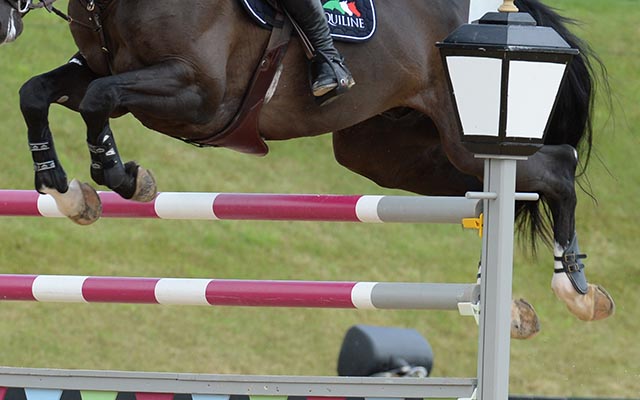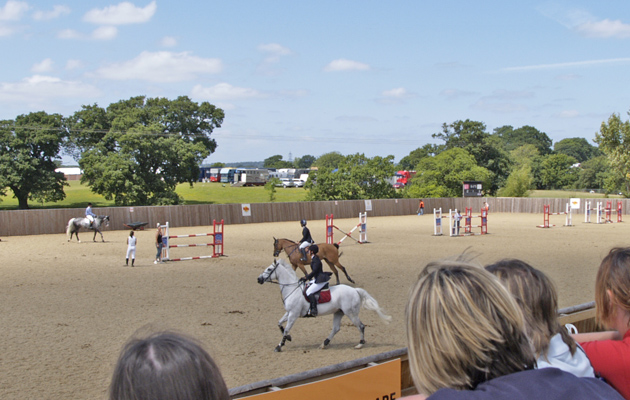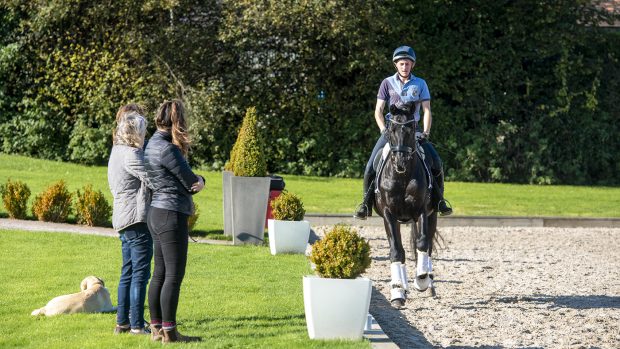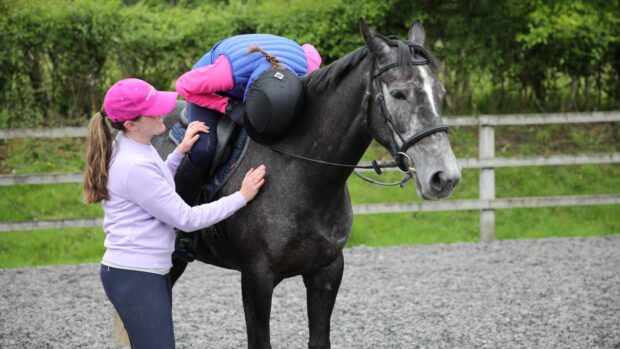Rider nerves are the bane of many competitors’ show days. A competition we’ve been training for and looking forward to for weeks can suddenly become a thing of dread. We can’t eat, we need the loo, we bite our nails and we snap at our faithful friends and family. We know how much we love our sport, but those of us who suffer from nerves often ask ourselves why we’re doing it.
Of course, nerves bring benefits, too. Do you notice how top riders often say that a healthy dose of nerves raises the adrenaline and helps them perform at their best? That’s the mindset those riders crippled by competition anxiety need to adopt. Happily, it is possible to change the way you deal with nerves and reframe them in a much more positive light.
Performance psychologist Charlie Unwin works across sport, business and the military and helps riders to optimise their performance from the inside out in training and competition. His clients won four gold medals in Tokyo last summer, as well as three silvers and one bronze. Here, he tackles the two challenges for riders suffering from nerves: mind and body.
Rider nerves: the physiological challenge
First of all, Charlie dismisses the term “nerves”, which has such negative connotations, explaining that it’s “just energy, neither good nor bad”.
“The physiological and emotional component of our experience of nerves is the core of our performance on the horse,” he explains. “Without understanding what’s going on in our body, we cannot understand the psychological side. The symptoms of nerves may be familiar: high heart-rate and tension in the muscles.”
Charlie emphasises the positives that emanate from this energy.
“Without nerves we wouldn’t have the peak energy we need to perform at our best. That energy allows us to heighten our performance, to respond more quickly. This has an obvious value in cross-country riding, but also in the dressage arena where things are calmer, nerves can give us commitment and sharpen our focus – if we learn how to channel that energy properly.”
The good news is there are physical actions we can take.
“There are two major keys to channel nerves into something positive: breathing and active relaxation. The instruction, ‘don’t forget to breathe’ should be taken as seriously as any other technical advice. Holding our breath is a classic physiological response to anticipation, meaning we don’t get enough oxygen and our heart beats chaotically, sending signals to the brain that we’re in danger. The blood rushes to the emotional centres of the brain, bypassing the thinking centres, so we are not able to focus. Yet breathing is one thing we can control. Breathe rhythmically and deeply, and you will affect your whole nervous system.
“Active relaxation is not about putting your feet up! Tension creeps in when we are unaware in the hours, days and even weeks leading up to a competition. It means our brain cannot control our muscles effectively and our timing goes awry, so our horse behaves differently. You need to learn self-awareness and notice the tension. Go through your body systematically, starting with your forehead, eyes, jaw, neck and shoulders and assess how the muscles free. Breathe out through your nose to release tension and soften the muscles.”
Feeling calmer? Body sorted, next up is dealing with the mind.
The mental challenge
Once the physiological process is under control through breathing and relaxation, step three is about “positive focus”.
“This is how to direct our attention so that nerves help rather than hinder our performance,” Charlie says. “Some riders lean into a challenge in a positive way with a clear plan. Sometimes it feels like there is little we can control, but the best athletes are able to tune into that very little and to focus on that. They focus on positive action rather than suppressing the nerves.”
Charlie outlines two methodologies:
- The bubble
“Imagine you have a bubble in front of you and this is your performance,” he says. “If I put pressure on it with nothing inside, it will pop. Inside the bubble you put everything you can control – your plan, your warm-up routine, rhythm, accuracy and so on. Outside the bubble are all the things you cannot control – the weather, the judge, the ground, the warm-up arena size. Focus on what is inside the bubble, control the controllables – but without ignoring what’s outside the bubble, just accept it or it will play on your mind.” - Visualisation
“Work through whatever you will be doing as if you were physically there on the horse, with the same timing, rhythm, and preciseness,” Charlie suggests. “This has a profound effect on priming the brain and creating familiarity with the environment. You are leaning in to the competition environment, embracing it. Allow the heart-rate to go up, allow the excitement to pump through the veins and muscles, while breathing and relaxing. Act out your clear and positive plan.”
For more tips and details on psychology and coaching courses, visit centre10.com
Charlie’s book, Inside Out: Train your Mind and your Nerve like a Champion, is available on Amazon.
You may also enjoy reading…

10 tips to banish competition riding nerves
Do you suffer from competition riding nerves? Find out how to take control and use nerves to improve your performance

Beat the butterflies: dealing with nerves
Sport psychologist Inga Wolframm explains why riders get competition butterflies — and how you can use them to your advantage

Steph Croxford: ‘I get so nervous I feel sick and wonder why I’m doing it’
So you think you’re alone in getting nervous about competing? Think again. Even Steph Croxford battles nerves, and she’s seen

Subscribe to Horse & Hound magazine today – and enjoy unlimited website access all year round
Horse & Hound magazine, out every Thursday, is packed with all the latest news and reports, as well as interviews, specials, nostalgia, vet and training advice. Find how you can enjoy the magazine delivered to your door every week, plus options to upgrade your subscription to access our online service that brings you breaking news and reports as well as other benefits.





